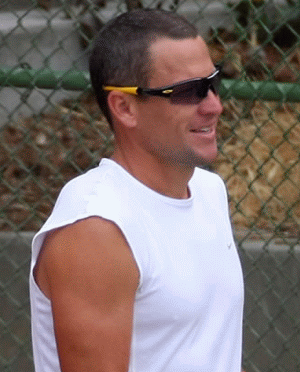
The lifelong suspension that the US Anti-Doping Agency (USADA) has imposed on the ex-cyclist Lance Armstrong prevents him from running in the next Chicago Marathon.
Race organizers confirmed on Friday that Armstrong is not officially registered for the traditional athletic event to be held on October 7.
Armstrong had planned to sign up with the "Livestrong" team, which represents the charity that fights the deadly cancer disease, and whose purpose was to raise funds for his cause that is managed by the "Lance Armstrong Foundation".
The decision not to allow Armstrong to run the marathon is considered by the foundation's directors as something "frustrating and regrettable."
Lance Armstrong Foundation President and CEO Doug Ulman acknowledged that it was a very bad thing for his organization as it undermined their fundraising efforts.
However, the Chicago Marathon race is conducted under the supervision of the United States Track and Field Federation and Armstrong's ban from competition prevents him from entering any event organized, sanctioned or approved by organizations that follow the rules of the World Anti-Doping Agency (WADA).
"Ironman France" also banned Armstrong from participating for similar reasons after USADA filed doping charges against him last June and which the former American cyclist did not want to defend before the arbitration committee.
The spokeswoman for the United States Athletics Federation (USATF), Jill Geer, through an email said that the decision not to allow Armstrong to run was the logical action to comply with what is established by law.
“The code is very clear as to the eligibility of sanctioned athletes to compete in other sports,” Geer reported. "The USATF has signed the AMA code, and therefore the lifetime ban that Armstrong received from USADA affects not only cycling but all other federated sports."
The endorsement and official supervision exercised by the athletics federation over the Chicago Marathon test, allows it to increase its international prestige by recognizing and standardizing the results obtained from the traditional long-distance race.
Armstrong has denied doping, but decided last month not to fight charges USADA brought against him of participating in a chain of systematic doping from 1998 to 2005.
USADA invalidated 14 years of his results - including his record seven Tour de France titles - and banned him for life from participating in or being involved in federated sporting competitions after concluding that he used banned substances to enhance his performance. EFE